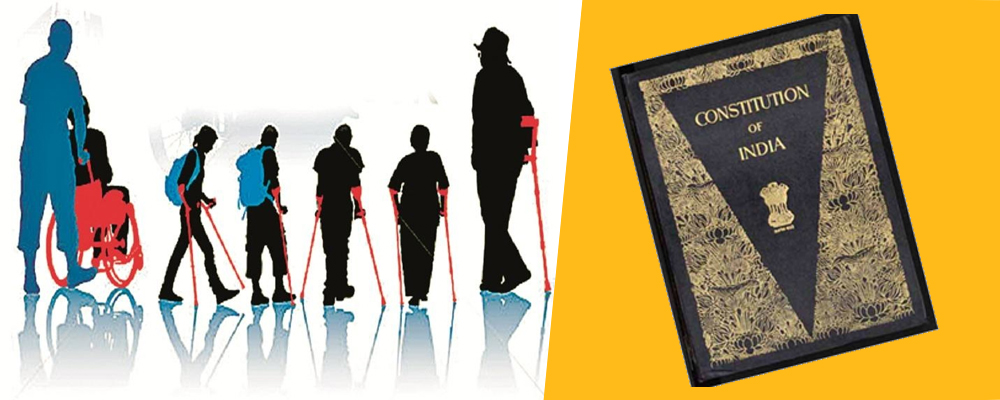What are the rights of a disabled person?
Disabled persons are as much a part of the country as non-disabled persons thus all the rights provided to the citizens of India are also granted to them.
The Constitution of India applies regularly to every authorized citizen of India, whether healthy or incapacitated (materially or psychologically).
Fundamental rights to persons with disabilities:
- The Constitution also ensures the power of justice, freedom of thought, eloquence, faith, belief, and worship, equality of status and opportunity, and development of fellowship to citizens with disabilities.
- Article 15(1) advises the government not to discriminate against any citizen of India (including persons with disabilities) on grounds of religion, race, caste, sex, or place of birth.
- Article 15(2) declares that no citizen (including persons with disabilities) shall be subject to any disability, liability, limitation, or restriction on any ground in the interest of entering shops, public establishments, hotels, and public accommodation.
- There is uniformity of probability for all citizens (including persons with disabilities) in subjects for commissioning or authorization in any province under the State.
- No person and handicapped irrespective of his origin can be treated as prohibited or untouchable. It will be treated as a punishable offence in compliance with the law enforced by Article 17 of the Constitution.
- The life and voting rights of all, including the disabled, are protected under Article 21 of the Constitution.
Need A Legal Advice
The internet is not a lawyer and neither are you. Talk to a real lawyer about your legal issue

- There can be no human trafficking (including the disabled), and the tramp and other kinds of coerced labor are forbidden and it is punishable under the law and Article 23.
- Article 24 forbids the commissioning of children also the disabled under the age of 14 years to work in any establishment or ambush or to be employed in any other dangerous profession. Even a private entrepreneur working for the Government cannot employ children below 14 years of age in such a profession. This also includes disabled children.
- Article 25 guarantees to each citizen with including disabled person right to freedom of religion. All disabled body has the freedom of morals to function and develop their religion subjected to peculiar order, decency, and strength.
- No disabled body can be constrained to pay any expenses for the development and preservation of any special religion or orthodox group.
- Every disabled body can lead the Supreme Court of India to implement his fundamental rights and the powers to move the Supreme Court is supported by Article 32.
- No disabled body who is occupying the property can be bereaved of his property unless it is done by the power of law. Any unapproved withholding of property can be summoned by suit and for assistance by way of depreciation.
- Every disabled body on the accomplishment of 18 years of age becomes qualified for the inclusion of his title in the common constituent roll for the provincial electorate to which he applies.





 Talk to a Lawyer
Talk to a Lawyer